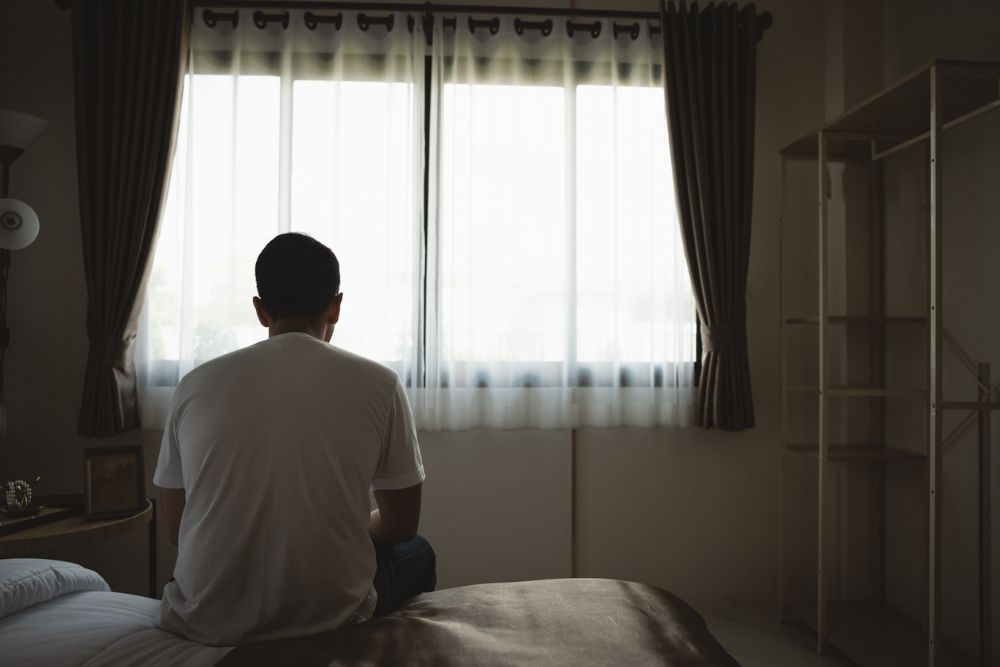Popular media often portrays depression as crying in the dark or feeling constant sadness. But for many people, depression doesn’t look like tears—it looks like nothing. A numb, blank, energy-sapping nothing.
You may feel mentally stuck and physically drained. Even hobbies you once loved—like reading, cooking, painting, or playing video games with your friends—can start to feel like chores. Getting out of bed might feel like lifting a thousand-pound weight. This isn’t laziness; this is anhedonia, a core symptom of depression that makes it hard to experience pleasure or motivation.
What Neuroscience Says About Depression and Motivation
According to neuroscience, the motivation problems you’re experiencing are rooted in how depression disrupts your brain’s reward circuitry. Dopamine is a neurotransmitter that plays a vital role in how we anticipate rewards, feel pleasure, and initiate effort toward a goal.
When your dopamine levels are optimal, you feel curious, motivated, and rewarded by everyday activities like meeting a friend for coffee, playing with your children, or finishing a project at work. When dopamine is deficient or poorly regulated, those same activities feel meaningless or impossible.
In people with depression, multiple changes in the brain affect dopamine’s normal functioning:
- Reduced dopamine synthesis. Studies show that people with major depressive disorder often have lower levels of dopamine production, especially in the mesolimbic pathway—a brain circuit crucial for motivation and reward anticipation.
- Decreased dopamine receptor sensitivity. Even if dopamine is produced, it might not be effectively received. This is particularly true in areas like the nucleus accumbens, the part of the brain that interprets rewards. The receptors that normally “catch” dopamine and signal pleasure or excitement may be less responsive.
- Altered connectivity. Functional MRI studies reveal that depression disrupts communication between the prefrontal cortex (responsible for decision-making and planning) and the ventral striatum (which processes reward). This weakened connection means it’s harder to feel motivated to pursue or even think about pleasurable goals.
- Inflammation and neurotoxicity. Chronic stress, trauma, or illness can trigger inflammation that interferes with dopamine signaling. Inflammatory cytokines—chemical messengers that are elevated in some individuals with depression—can suppress dopamine production and affect neurotransmitter balance overall.
- HPA axis overactivation. The hypothalamic-pituitary-adrenal (HPA) axis, your body’s main stress-response system, often becomes overactive in people with depression. This leads to elevated levels of cortisol (the stress hormone), which can further damage dopamine pathways and reduce neuroplasticity—the brain’s ability to adapt, grow, and recover.
All these factors combine to create a state where your brain’s natural motivation system is essentially offline. It’s like trying to drive a car without gas. The engine sputters, the wheels don’t turn, and everything feels harder than it should.
Think of a phone running on 1% battery. It prioritizes only the most essential functions, so complex planning, motivation, and goal setting get shut down. That’s why things like paying bills or doing laundry sometimes feel impossible.
How to Regain a Sense of Momentum
When your brain’s natural “go” system is offline, expecting yourself to just snap out of it isn’t just unhelpful—it’s biologically unrealistic. That’s where professional support becomes essential.
At Eagle View Behavioral Health in Bettendorf, Iowa, our therapists, psychiatrists, and mental health coaches can offer tools and treatments that directly target the brain and behavioral changes underlying low motivation.
Evidence-Based Therapy That Gets You Moving Again
Certain types of therapy are specifically designed to rewire the motivational systems that depression disrupts.
- Cognitive Behavioral Therapy (CBT). A cornerstone of depression treatment, CBT helps you challenge the hopeless, self-critical thoughts that kill motivation and teaches you how to take small, manageable actions even when you don’t feel like it. These micro-steps help retrain your brain’s reward circuitry over time.
- Behavioral Activation Therapy. This type of therapy focuses on reconnecting you with daily routines and rewarding activities. It’s not about waiting to feel better first—it’s about doing first to feel better later.
- Motivational Interviewing (MI). When you’re stuck in ambivalence, this collaborative approach helps you explore what’s holding you back and uncover the small sparks of desire or goals that depression may have buried.
Medication to Support Healthy Brain Chemistry
In some cases, medication can help restore the brain’s dopamine system to a more functional state. Antidepressants like SSRIs, SNRIs, or bupropion (which specifically targets dopamine and norepinephrine) may help ease emotional numbness and reawaken motivation. A psychiatrist can help you find the right medication and dosage.
Holistic Tools That Work With the Brain
Our team encourages holistic support as part of a comprehensive treatment program. Some complementary strategies that can boost dopamine and improve mood regulation include:
- Light therapy
- Gentle movement or structured exercise
- Sleep hygiene coaching
- Nutrition support if vitamin deficiencies are contributing to fatigue or mood swings
These strategies are not quick fixes. However, they can rebuild your internal battery over time.
Psychoeducation to Reframe What You’re Experiencing
Understanding why you feel so stuck is powerful. Part of our treatment process includes helping you learn about how depression affects your brain and behavior. This can lift the burden of shame and self-blame that so often accompanies low motivation. When you realize that you’re not “lazy” or “broken”—that your brain is operating under stress—it becomes easier to practice self-compassion and stick with a treatment plan.
Social Connection to Reduce Feelings of Isolation
Depression thrives in isolation. Support groups, group therapy, or even texting a friend can help activate the parts of your brain that respond to human connection and reward.
Request Your Free Confidential Assessment
Eagle View’s compassionate professionals are available 24/7 to help you understand your depression symptoms and take the first steps toward feeling like yourself again. Contact us today for a free, confidential assessment.






